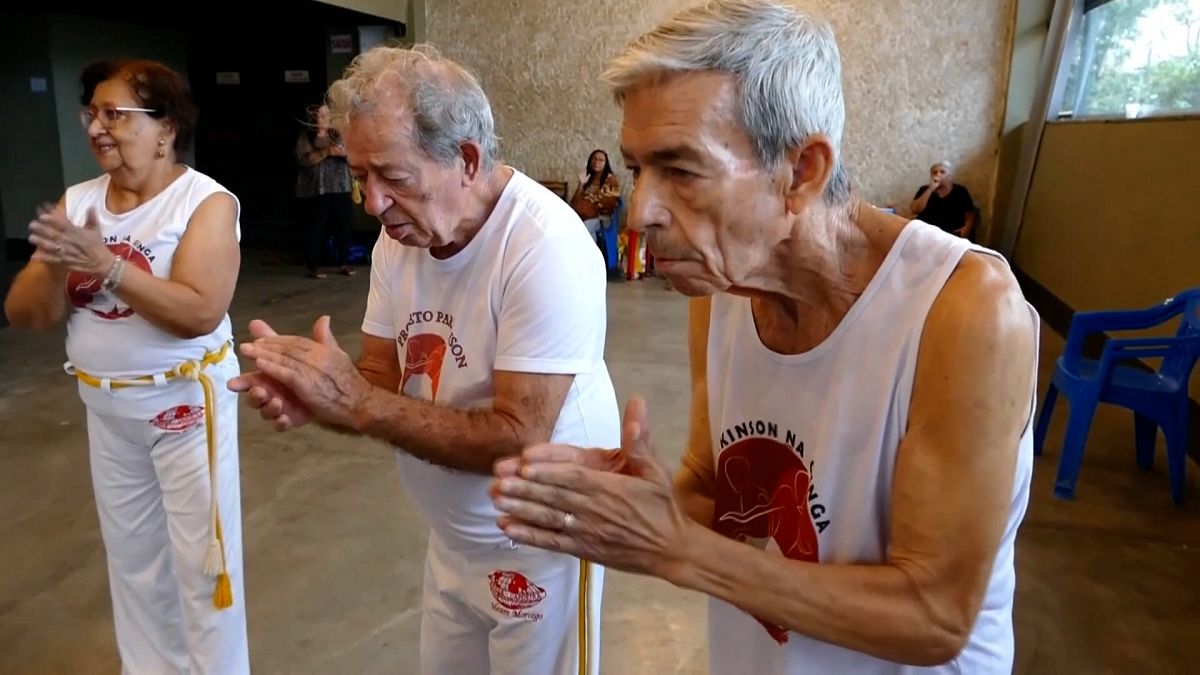

In the serene landscape of contemporary health care, captivating stories of trial, adaptation, and caution shape the narrative. Two such stories emerge, inviting us to explore unique approaches to managing health conditions. In the vibrant city of Rio de Janeiro, capoeira—a traditional Brazilian martial art blending acrobatics, dance, and music—offers a novel source of relief for those living with Parkinson’s disease. Meanwhile, the scientific community is exercising caution over the increasing popularity of cannabidiol (CBD), as new research sheds light on its unforeseen effects on liver function.
Deep within the rhythm of Rio de Janeiro, a unique program is gaining attention for its potential to enhance the quality of life for individuals with Parkinson’s disease. Capoeira, an art form that integrates physical mobility, music, and cooperative expression, is making headway as an alternative approach to managing symptoms of this neurodegenerative disorder. Participants engage in fluid movements and rhythmical exercises known to promote flexibility, balance, and coordination—key areas often challenged by Parkinson’s. The philosophy underlying capoeira focuses not merely on physical agility but also on fostering an empowered mindset, offering patients a holistic pathway to explore their abilities while nurturing a sense of community and belonging.
While the potential of capoeira unfolds in Rio, another narrative is developing in the realm of wellness and natural health products—CBD. Often celebrated for its purported therapeutic properties, CBD has surged in popularity among individuals seeking relief from various ailments. Yet, amidst its rise, a recent clinical study points to a need for vigilance. The research, targeting even modest dosages of CBD, disclosed that some participants experienced an unexpected increase in liver enzyme levels, rising more than threefold compared to normal ranges. This discovery prompts a deeper look into the biochemical pathways influenced by CBD and underscores the importance of individualized health considerations.
The juxtaposition of these health narratives highlights a shared essence: the pursuit of alternative means to enhance wellness and the careful consideration of their implications. In the context of capoeira’s therapeutic offerings, we see an empowering, community-driven approach that uplifts individuals through cultural and physical engagement. By contrast, the research on CBD invites a mindful reflection on the complexities of herbal supplements, advocating for informed choices and regular health monitoring to avert potential adverse effects.
These stories mark compelling entries in the ongoing dialogue about healthcare innovations and underscore the delicate interplay between tradition and modern science. As individuals navigate their health journeys, the importance of informed, personalized strategies is ever-evident. Whether through the embrace of cultural arts as a pathway to health or the measured integration of botanical supplements, the empowerment of choice remains central—ensuring that each step taken is aligned with one’s unique health narrative.
As we reflect on these developments, it becomes clear that the stories of capoeira and CBD are more than isolated accounts; they resonate with broader themes of adaptability and caution in health and wellness. Such narratives continue to inspire, urging us to approach our health choices with an open heart and a discerning mind, crafting a future where traditional wisdom and scientific inquiry harmonize for the well-being of all.
Source: {link}
